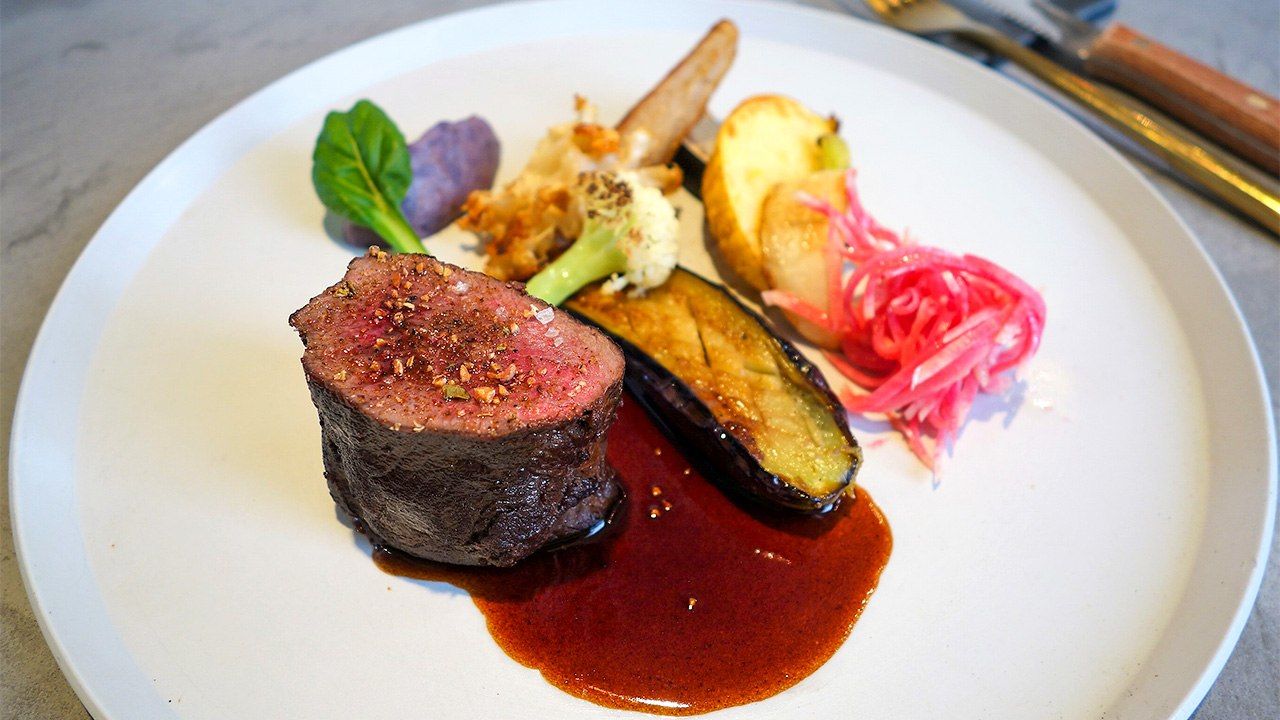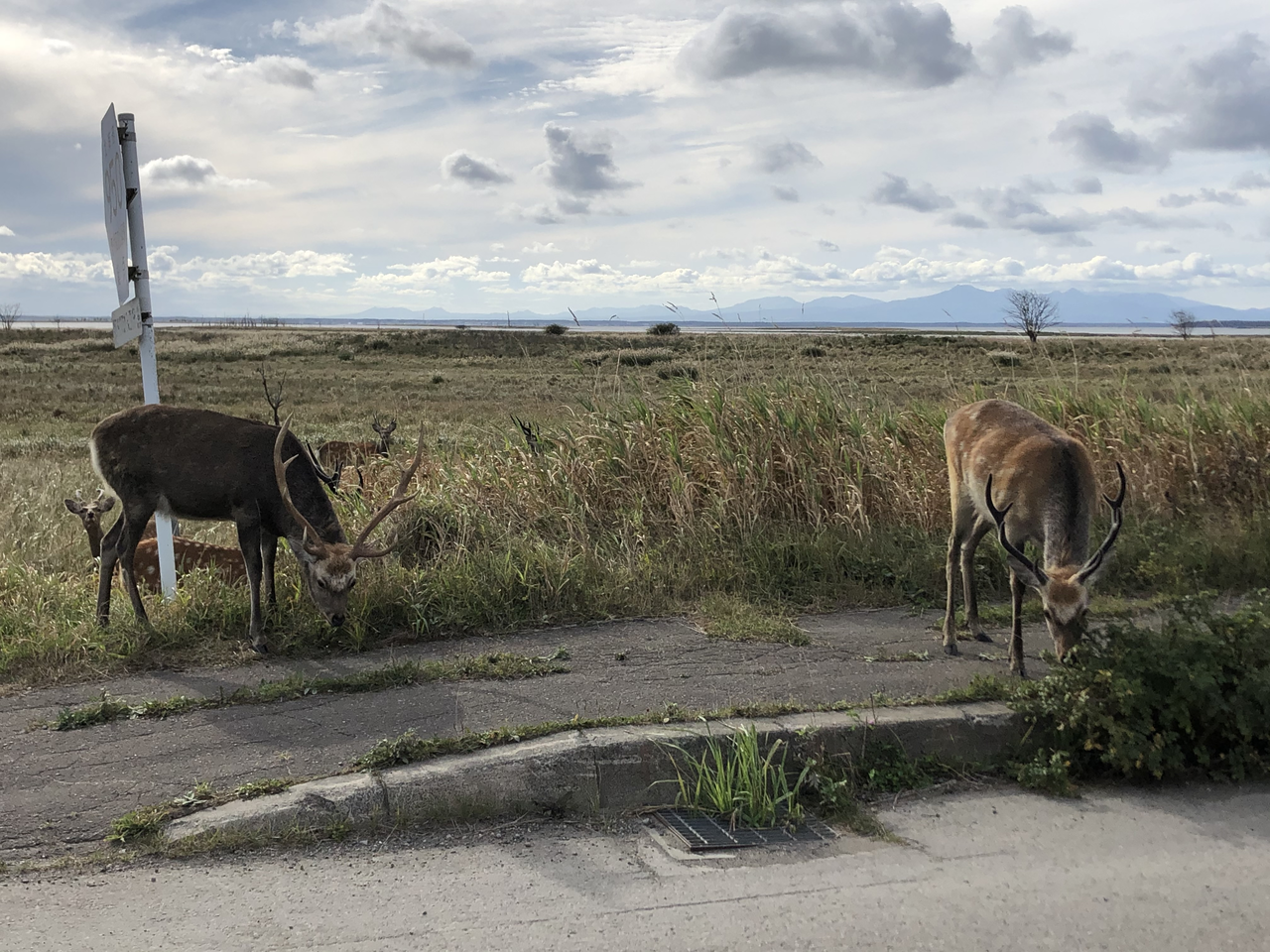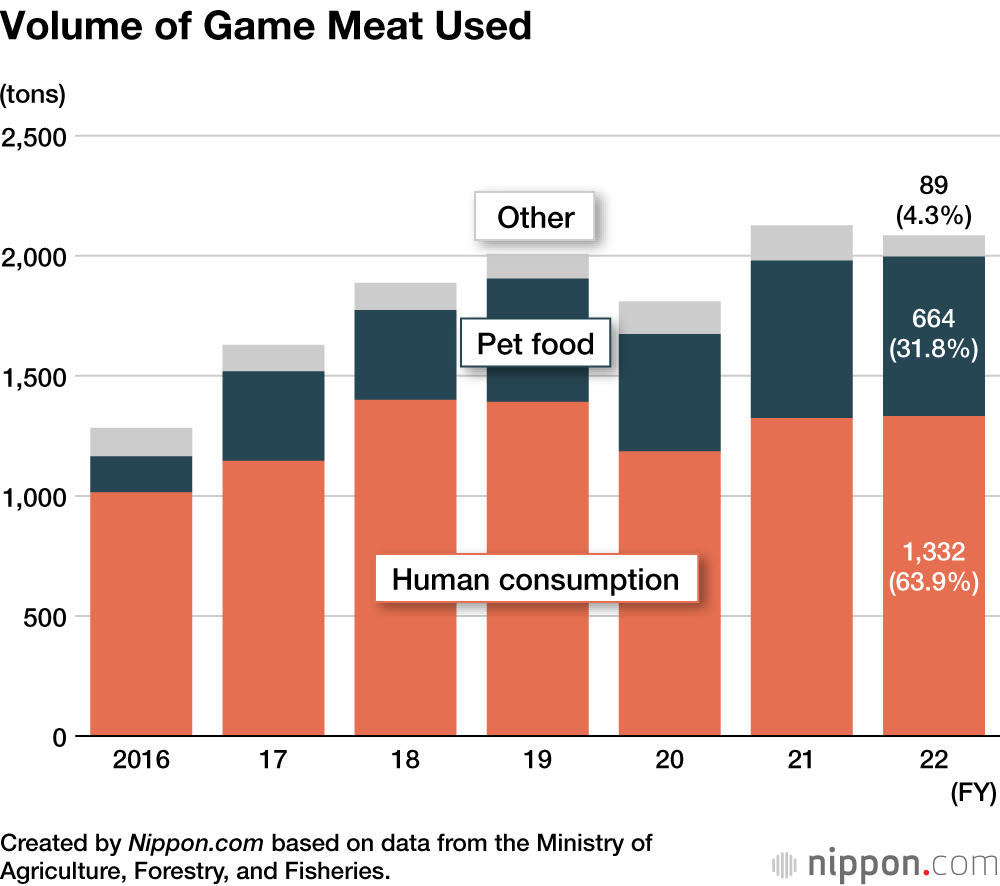
Japan’s Wild Game Consumption on the Rise
Environment Food and Drink- English
- 日本語
- 简体字
- 繁體字
- Français
- Español
- العربية
- Русский
According to the Ministry of Agriculture, Forestry, and Fisheries, 2,085 tons of wild game was processed at 750 facilities across Japan in fiscal 2022, a 1.6-fold increase compared to fiscal 2016. The steady increase is due to the expansion and established use of game meat in the restaurant industry, along with development of new uses, such as pet food. The ministry’s aim is to double the amount used in fiscal 2019 to 4,000 tons by 2025. In Japan, wild game meat and cuisine that uses that meat is referred to as jibie, originating from the French term gibier, meaning the meat from hunted wild birds and animals.
There has long been a culture in Japan of eating wild game and during the Edo period (1603–1868), even though meat was taboo, a secret code was used whereby venison was referred to as maple (momiji) and wild boar became peony (botan), so that people could claim it was not meat at all and still enjoy it. Another name for wild boar was yamakujira or “mountain whale.”
In 2022, the amount of crop damage by wild birds and animals totaled ¥15.6 billion, with around 70% being caused by deer, wild boars, and monkeys. Improvements in capture and other measures has led to a 30% drop in such damage since fiscal 2010. However, MAFF stated that “the damage has stopped decreasing and a significant amount is still being caused.”

Yezo sika deer in Hokkaidō. (Courtesy of the Ministry of Agriculture, Forestry, and Fisheries)
In order for game meat to be able to be distributed in the market, the captured wild birds and animals need to be properly processed, including being bled, so in May 2023, the ministry introduced a wild game hunter training program to help further enable this. A national wild game certification system has also been implemented to promote hygiene management at meat processing facilities. In addition, contests for wild game cuisine are being held, with the aim of making it more popular to cook wild game at home, in restaurants and as part of school lunches.
(Translated from Japanese. Banner photo: Roast venison. Courtesy of the Ministry of Agriculture, Forestry, and Fisheries.)

